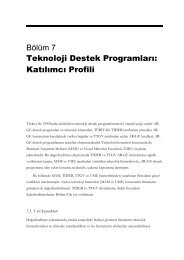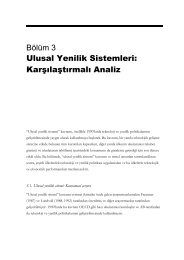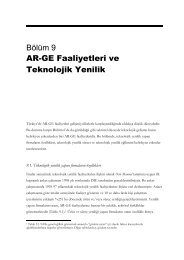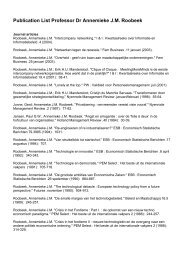Eleventh Five Year Plan
Eleventh Five Year Plan
Eleventh Five Year Plan
You also want an ePaper? Increase the reach of your titles
YUMPU automatically turns print PDFs into web optimized ePapers that Google loves.
Towards Women’s Agency and Child Rights 195Box 6.5Ensuring Equality for Muslim Women: A Big ChallengeEven today, 59% Muslim women have not attended school and 60% are married by the age of 17. Overall, Muslims have aliteracy rate of 59.1%, 5.7 percentage points lower than the national average. While in Haryana, one-fifth of Muslim womenare literate, the figure is about one-third in Bihar and UP. In 15 States, the literacy level among Muslim women is less than50%. Muslims register the lowest work participation rate of 31.3%, and just about 14% of Muslim women are registered asworkers. Even in Kerala and Tamil Nadu, which have high literacy rates among all communities, including Muslims, the workparticipation rate of Muslims is 14 percentage points lower than that of Hindus.Ensuring that Muslim women get access to education, health, and livelihoods, not just at par with Muslim men but withfemale and male counterparts from other religions will be a critical challenge for the <strong>Eleventh</strong> <strong>Plan</strong>.and more context-specific programming. This calls forstrategies to increase the number of women andgirls from these socially disadvantaged communitiesin professional, technical, and higher education andin posts of teachers.6.53 The <strong>Eleventh</strong> <strong>Plan</strong> will make concerted effortsto examine why young girls, especially those belongingto particular socio-economic and cultural groups,are unable to access education despite the SSA.Through provision of crèches, scholarships, andadequate infrastructure, especially toilets in schools,it will facilitate enrolment and retention of girls inthe education system. Details of Education for girlchildren and women are available in the EducationChapter.Women and Media6.54 Much of television programming propagatespatriarchal values and portrays women roles in detrimentalways. As the nodal agency for the empowermentof women, one of the important tasks for theMoWCD during the <strong>Eleventh</strong> <strong>Plan</strong> will be to curtailthe harmful effects of television on women’s livesthrough a gender-informed media policy. It will harnessthis powerful medium to promote the messageof gender equity through positive programmingand information dissemination on laws and schemes.For this, the Ministry might engage in a professionalPPP with media experts with gender specialization. Inorder to operationalize an aggressive and professionalmulti-media strategy, there may be a need to set up aseparate media unit within the MoWCD, with the participationof professional media consultants andwomen’s media groups.Reaching Marginalized and Vulnerable Women6.55 Intersections between gender and other socialand economic variables reinforce vulnerability of morethan one type and result in double and triple discriminationamongst women belonging to particulargroups. Sectoral planning often fails to capture this.Our ability to recognize these intersections andaddress the specific deprivations will be the real testof the <strong>Eleventh</strong> <strong>Plan</strong> agenda of inclusive growth. Forexample, women in the NER continue to be excludedfrom traditional decision-making bodies like Durbarsand Village Councils. To attain inclusive growth forthem, support services like counselling centres, shelterhomes, drug rehabilitation centres, particularly forvictims of HIV/AIDs, working women’s hostels etc.,have to be provided.Zero Tolerance for Discrimination againstSC/ST Women6.56 It is critical that the Ministries of WCD, SocialJustice and Empowerment, and HRD join hands toenforce penalties for blatant violations of the constitutionand the Scheduled Caste and Scheduled Tribes(Prevention of Atrocities) Act, 1989. Crimes of castebaseddiscrimination, untouchability, devadasi/jogini,and manual scavenging will be strictly punishedaccording to law. Institutions like NCW, NationalHuman Rights Commission, SC/ST Commission, SafaiKarmacharis Commission will be urged to take up SC/ST women’s issues as priority. Implementation ofthe Scheduled Caste Sub-<strong>Plan</strong> (SCSP) and TribalSub-<strong>Plan</strong> (TSP) will be maximized by earmarking ofthe funds in proportion to the SC/ST populationunder all schemes of the various line Departments.Distinct provisions for SC women will be made in the




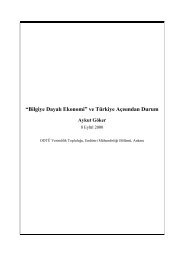
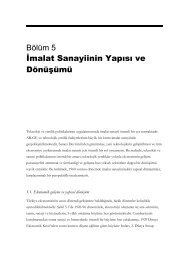
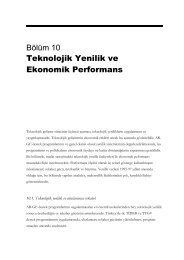
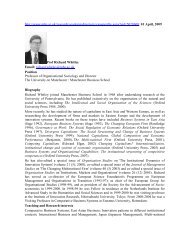

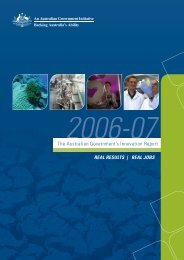
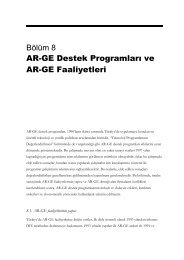
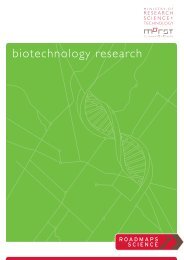
![[Tam] Uygula[ya] - Bilim, Teknoloji ve Ä°novasyon Politikaları TartıÅma ...](https://img.yumpu.com/36820041/1/184x260/tam-uygulaya-bilim-teknoloji-ve-anovasyon-politikalara-tartaama-.jpg?quality=85)
